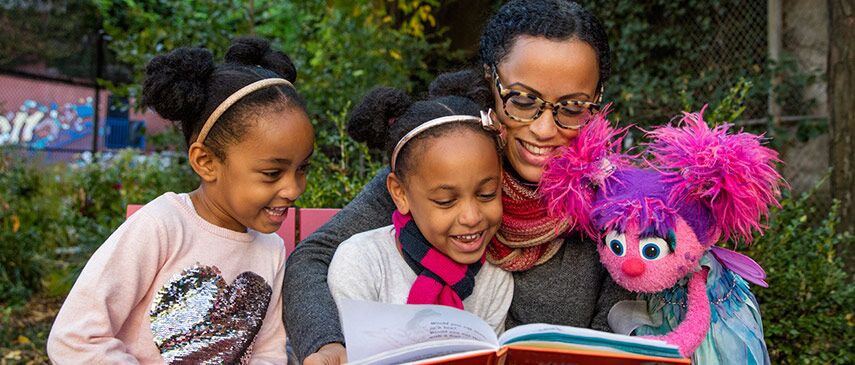A new workshop gives military families access to activities that teach young children about topics of race and discrimination.
Sesame Workshop, the nonprofit educational organization behind “Sesame Street,” with the support of USAA, launched a series of racial justice resources for military families to help them start important conversations about race with their children, according to a press release. The tools give parents ways to be sensitive and age appropriate in their discussions about topics that are often difficult to approach.
The “Coming Together” initiative started after the protests and racial tension of 2020 following the murder of George Floyd. This resulted in a global focus on the Black experience in America.
“It really did spark an urgency that we had to address this topic and historical trauma,” Rocia Galarza, VP of Educational Content and US Social Impact at Sesame Workshop, told Military Families.
The organization sought out therapists, journalists, and experts who are active within the military community to provide insight and education for this project.
“We started to gather actual advisors for it but we had to figure out a way to do it faster. We realized that this process needed to be split up because things were really difficult for so many families,” Galarza said.
DON’T MISS: Military kid opens doors to STEM for young women of color
In the past Sesame has tackled topics of representation, diversity, and some of the challenges of minority families. But these events warranted a more upfront and bold approach.
“This was a wake up call for us to see that we needed to be more explicit about the thought that we knew that racism was wrong,” she added.
And their goal is now to give parents tools to help teach children how to speak out against racist ideas and behaviors, which they call being an upstander.
“It’s the term we’re using which stands for helping out myself and others when we’re confronted with these situations.”
But because of the military lifestyle, Sesame found military families “needed something very specific because their experiences are specific,” said Galarza.
With the help of advisors, Sesame compiled comprehensive and engaging material that offers step-by-step instructions for parents. Each video and article highlights how to have a dialogue with children about how racism affects the world, starting with the people around them.
“We also have an interactive [community], which gives us the opportunity of giving people a start of the conversation.”
Research revealed that even though parents want to discuss racism with their children, they don’t know where to begin. The tool prompts children to create a self-portrait by describing how they look and what they like to do, which leads to understanding and appreciating not only who they are, but their differences.
“In addition, of course we have printables that support the same messages.”
And, this isn’t new. Sesame has always encouraged its viewers to embrace differences in the community. However, the approach of these resources, more specifically the articles, don’t skirt around racism. And although they speak to the impact on minority families, because of the insidious injustice, there is a hyper focus on Black families.
Other highlights include —
- A “Great Things” music video starring Elmo, Rosita, and Wes, highlighting strategies military families use to take care of themselves and their loved ones when dealing with “big feelings” — like the kind that arise after experiencing bias and unfairness.
- Articles for adults that further explain why it’s so important to proactively start these conversations, and how to help children make inclusive and empathetic choices.
- Professional development materials to help educators, social workers, and other providers integrate the resources on race and discrimination into their work with military families.
Galarza says we need to deal with what’s in front of us, “and that’s helping families see that there are some experiences that children are having that are difficult, that they need tools to handle. And then, we have to start exploring our own identities. This initiative will have a big part in continuing the tradition of celebrating who we are.”






